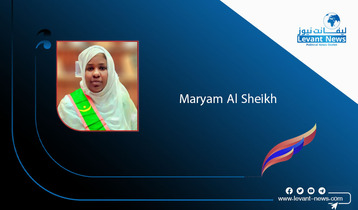-
How Should the World Prepare for Mohammed Bin Zayed?

At the age of 61, the world-renowned Sheikh Mohammed Bin Zayed has become the third president of the United Arab Emirates (UAE). After the death of his elder brother Sheikh Khalifa Bin Zayed, on May 13th, the UAE’s Federal National Council elected him to lead the country that he devotedly participated in making one of the most powerful actors in the region, during the past decade. Even more, Sheikh Mohammed Bin Zayed’s ascendance to the peak of power marks the beginning of a new era, not only for the UAE, but more broadly for the Gulf region, and consequently, the entire Middle East.
Many observers are wondering about what to expect from the new president of the UAE. But this is the wrong question to ask. No big shifts in the UAE’s domestic or foreign policy are expected to occur upon the change of the country’s leadership. Sheikh Mohammed Bin Zayed has always been in charge. He is the man who, publicly or discreetly, engineered most of the impressive reality of today’s UAE. From a Bedouin desert where people could not aspire for more than day-to-day living, the family of Zayed Al-Nahyan created a coveted country with a vision and mission that exceed its geographic borders and limited space. At least for the past 15 years, Sheikh Mohammed Bin Zayed has been in the center of the decision-making circle that built on Sheikh Zayed’s legacy and continued the path to UAE’s growth.
The general stability of the economic and political system, and the lack of competition among the ruling families of the sister Emirates that comprise the federal state, will save Sheikh Mohammed a lot of time in selecting and appointing the co-leaders who will act as pillars of support to his rule. That includes the royals who will replace him in the positions of the Crown Prince and the Deputy Minister of Defense. As soon as he gets done with that, the new President will have the time and the space needed to focus all his efforts on enhancing and accelerating his foreign policy vision, in the region and beyond.
The core theme of the UAE’s foreign policy could be summarized in three key points. The first is about fighting against all forms of religious extremism. That is not limited to jihadist organizations, such as the Sunni Al-Qaeda and the Islamic State terrorists (Daesh), and the Shiite Houthis in Yemen and Hezbollah in Lebanon. It, also includes, political Islamist organizations, like the Muslim Brotherhood and their flanks and sympathizers in the Gulf. As UAE’s chase of the Islamist organizations is expected to intensify under Sheikh Mohammed leadership, that may renew the rivalry between the UAE and its neighbor Qatar which adopts a contrary policy of supporting Islamists of all types.
The second point the defines UAE’s foreign policy is about reaching out and enhancing ties with the non-Arab countries of the Middle East; namely Turkey, Israel and Iran. Over the past three years, in particular, the UAE has been valiantly active on breaking one political taboo after the other, starting from signing the Abraham Accords with Israel, in 2020, up to fixing broken ties with Iran and Turkey, following the hasty withdrawal of the United States from Afghanistan last summer.
The third key point in UAE’s foreign policy vision is about continuously boosting the defense power and armament capabilities of the UAE military. That is mainly through pouring large investments in acquiring high-end weapons from the United States and Europe. In 2020, the UAE signed a deal with the former U.S. Administration of President Trump to acquire the advanced F-35 fighter jets and other weapons for 23 billion dollars. When the following Administration of President Biden delayed the fulfilment of the deal, the UAE moved on with making another deal with France to purchase 80 pieces of its trademark Rafale fighter jets for 19 billion dollars.
Any other movement by the UAE on the world stage is basically motivated by one or more of these particular three key points. That includes the UAE’s firm stance, in conformity with Saudi Arabia’s position, towards the Russia-Ukraine war, despite the several pleas by western leaders for the Gulf countries to side with the west against Russia. The UAE and Saudi Arabia are not necessarily supporting the Russian offensive, by refusing to side with the west. In fact, they voted against the Russian invasion on Ukraine in the United Nations Security Council. However, they cannot side with the west if the west is not helping them fulfil their foreign and defense policy goals.
In that sense, the right question to ask is not about what Sheikh Mohammed Bin Zayed is expected to do as president. That we can easily derive the answer for. However, one should ask how the world should prepare to deal with a tenfold more powerful UAE under the leadership of the staunch and invincible Mohammed Bin Zayed.
BY: Dalia Ziada
You May Also Like
Popular Posts
Caricature
BENEFIT AGM approves 10%...
- March 27, 2025
BENEFIT, the Kingdom’s innovator and leading company in Fintech and electronic financial transactions service, held its Annual General Meeting (AGM) at the company’s headquarters in the Seef District.
During the meeting, shareholders approved all items listed on the agenda, including the ratification of the minutes of the previous AGM held on 26 March 2024. The session reviewed and approved the Board’s Annual Report on the company’s activities and financial performance for the fiscal year ended 31 December 2024, and the shareholders expressed their satisfaction with the company’s operational and financial results during the reporting period.
The meeting also reviewed the Independent External Auditor’s Report on the company’s consolidated financial statements for the year ended 31 December 2024. Subsequently, the shareholders approved the audited financial statements for the fiscal year. Based on the Board’s recommendation, the shareholders approved the distribution of a cash dividend equivalent to 10% of the paid-up share capital.
Furthermore, the shareholders endorsed the allocation of a total amount of BD 172,500 as remuneration to the members of the Board for the year ended 31 December 2024, subject to prior clearance by related authorities.
The extension of the current composition of the Board was approved, which includes ten members and one CBB observer, for a further six-month term, expiring in September 2025, pending no objection from the CBB.
The meeting reviewed and approved the Corporate Governance Report for 2024, which affirmed the company’s full compliance with the corporate governance directives issued by the CBB and other applicable regulatory frameworks. The AGM absolved the Board Members of liability for any of their actions during the year ending on 31st December 2024, in accordance with the Commercial Companies Law.
In alignment with regulatory requirements, the session approved the reappointment of Ernst & Young (EY) as the company’s External Auditors for the fiscal year 2025, covering both the parent company and its subsidiaries—Sinnad and Bahrain FinTech Bay. The Board was authorised to determine the external auditors’ professional fees, subject to approval from the CBB, and the meeting concluded with a discussion of any additional issues as per Article (207) of the Commercial Companies Law.
Speaking on the company’s performance, Mr. Mohamed Al Bastaki, Chairman BENEFIT , stated: “In terms of the financial results for 2024, I am pleased to say that the year gone by has also been proved to be a success in delivering tangible results. Growth rate for 2024 was 19 per cent. Revenue for the year was BD 17 M (US$ 45.3 Million) and net profit was 2 Million ($ 5.3 Million).
Mr. Al Bastaki also announced that the Board had formally adopted a new three-year strategic roadmap to commence in 2025. The strategy encompasses a phased international expansion, optimisation of internal operations, enhanced revenue diversification, long-term sustainability initiatives, and the advancement of innovation and digital transformation initiatives across all service lines.
“I extend my sincere appreciation to the CBB for its continued support of BENEFIT and its pivotal role in fostering a stable and progressive regulatory environment for the Kingdom’s banking and financial sector—an environment that has significantly reinforced Bahrain’s standing as a leading financial hub in the region,” said Mr. Al Bastaki. “I would also like to thank our partner banks and valued customers for their trust, and our shareholders for their ongoing encouragement. The achievements of 2024 set a strong precedent, and I am confident they will serve as a foundation for yet another successful and impactful year ahead.”
Chief Executive of BENEFIT; Mr. Abdulwahed AlJanahi commented, “The year 2024 represented another pivotal chapter in BENEFIT ’s evolution. We achieved substantial progress in advancing our digital strategy across multiple sectors, while reinforcing our long-term commitment to the development of Bahrain’s financial services and payments landscape. Throughout the year, we remained firmly aligned with our objective of delivering measurable value to our shareholders, strategic partners, and customers. At the same time, we continued to play an active role in enabling Bahrain’s digital economy by introducing innovative solutions and service enhancements that directly address market needs and future opportunities.”
Mr. AlJanahi affirmed that BENEFIT has successfully developed a robust and well-integrated payment network that connects individuals and businesses across Bahrain, accelerating the adoption of emerging technologies in the banking and financial services sector and reinforcing Bahrain’s position as a growing fintech hub, and added, “Our achievements of the past year reflect a long-term vision to establish a resilient electronic payment infrastructure that supports the Kingdom’s digital economy. Key developments in 2024 included the implementation of central authentication for open banking via BENEFIT Pay”
Mr. AlJanahi concluded by thanking the Board for its strategic direction, the company’s staff for their continued dedication, and the Central Bank of Bahrain, member banks, and shareholders for their valuable partnership and confidence in the company’s long-term vision.
opinion
Report
ads
Newsletter
Subscribe to our mailing list to get the new updates!




















